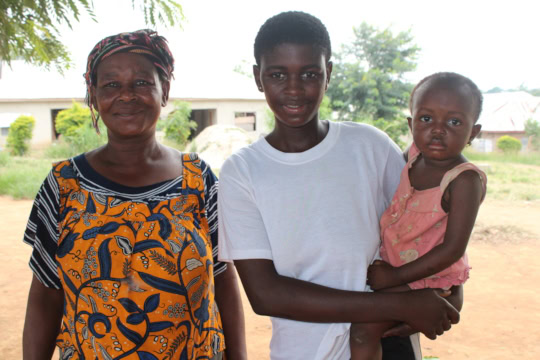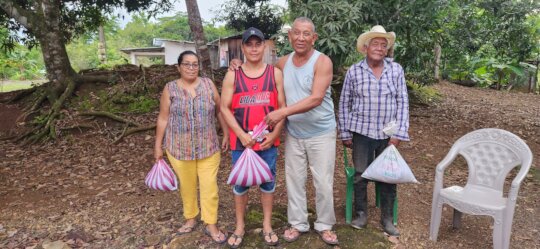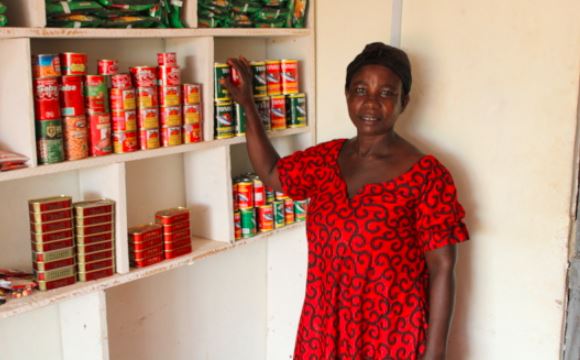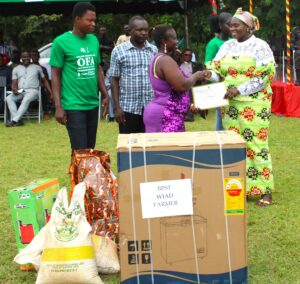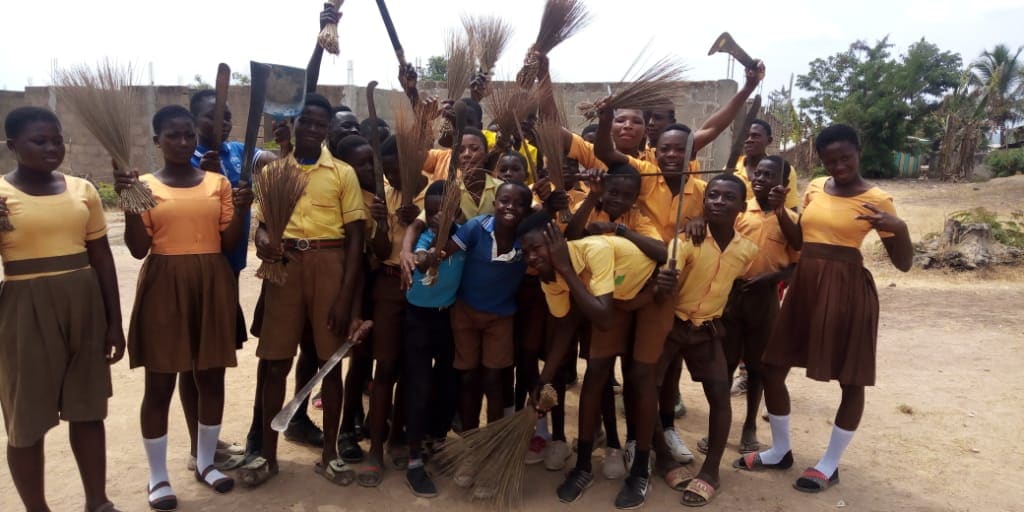
Combating Gender Stereotypes in an Agribusiness Club
By Emmanuel Obiri Laryea – Agriculture & Entrepreneurship Program Officer
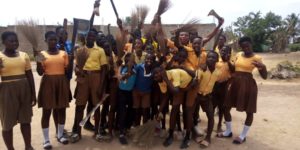
Gender Empowerment Dialogue in action!
Gender issues have become a major concern globally, and societies are waking up to the fact that empowering women can contribute to a country’s economic growth. Ghana is no exception; however, Ghana’s ethnic, cultural, and agro-ecological diversity make an overview of gender relations and their consequences for women’s access to resources, decision making, and status extremely difficult.
Gender issues are more intense in the northern part of the country due to strongly patriarchal family structures, women’s lack of influence in decision making, and a history of male outmigration which has tended to increase women’s labour burden. All of these factors result in generally more limited options for women. Even though women are numerically significant in the population of Ghana, they experience gender-based discrimination including: domestic violence, powerlessness, poverty, and social and political exclusion from active participation in the national development of the country.
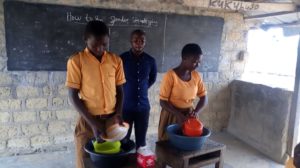
Both boys and girls can clean!
All these issues and more are very evident in the operational areas of Self-Help International. Land and farms are owned by men who are the sole decision-makers regarding the affairs of the family. Gender stereotypes and gendered divisions of labour are also prevalent in many households, with clear distinctions between jobs that are generally thought to be performed by males and females. This has been an obstacle to achieving equality between men and women. It tends to place unhealthy demands on both sexes, which inhibits their natural talents and interests from developing.
In general, all Self-Help communities exhibit one or more of the gender-related problems, but they have been especially present in the village of Kukuboso. Gender issues (especially stereotyping, division of labour, and discrimination) are so widespread that they’re communicated consciously and unconsciously to children by parents, community members, and early learning experiences.
Members across Self-Help’s agribusiness clubs (clubs formed in primary and Junior High Schools to enhance the capacity of the youth through livelihood and life skills development) engage in gender stereotyping and divisions of labour; however, the situation in Kukuboso was worse because the male students were preventing female students from joining the club by saying that the clubs’ activities were exclusively for boys/men.
Out of the 51 members recruited to join Kukuboso’s agribusiness club, only one girl was able to fight her way through to join the club by resisting the efforts from her male counterparts to stop her from joining. This pattern continued, and it got worse when girls who joined the agribusiness club meetings became spectators because they could not actively contribute at meetings.
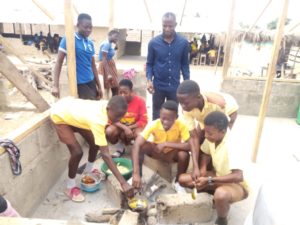
Boys can cook!
To curb the issue of gender stereotypes and divisions of labour in the clubs, Self-Help’s agriculture team trained all agribusiness club advisors on how to organize Gender Empowerment Dialogue using the club’s gender manual. A follow-up visit was made to Kukuboso by Self-Help’s Youth in Agriculture Project Officer to help the community’s club advisor organize a Gender Empowerment Dialogue training on gender stereotypes and divisions of labour. The approach adopted included storytelling, discussion, and activities. Both sexes were engaged in activities perceived to be for a particular gender group, and the outcome of the Gender Empowerment Dialogue was enormous. The six new girls that joined the agribusiness club meetings were all welcomed by the boys, and the only girl who initially joined the club is currently serving as the club’s secretary.
Mr. Augustine, a teacher and a club advisor said, “We want to be able to host an empowerment dialogue for the whole community. Even if the present cannot be changed, we are hopeful the future is bright.’’
See how Self-Help also empowers young women through the Teen Girls Club by clicking here.

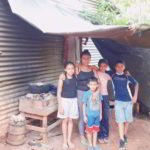 Previous Post
Previous Post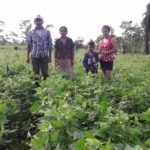 Next Post
Next Post